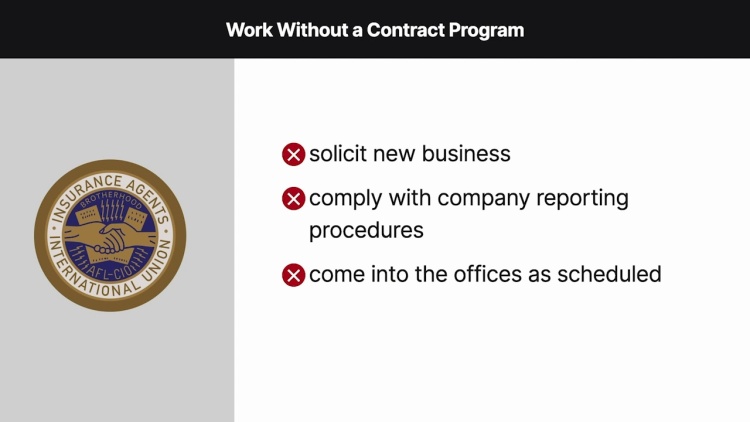National Labor Relations Board v. Insurance Agents’ International Union
United States Supreme Court
361 U.S. 477 (1960)
- Written by Rose VanHofwegen, JD
Facts
Since 1949, the Insurance Agents’ International Union (defendant) represented Prudential insurance agents. While negotiating a new collective-bargaining agreement for 1956, the union warned that it would organize a “Work without a Contract” program intended to harass Prudential unless the parties reached agreement before the existing contract expired. Agents who were union members refused to solicit new business or perform usual duties. Instead, agents engaged in sit-ins, picketing, and leafleting at the Prudential home office and presented petitions that policyholders had signed. Prudential filed charges with the National Labor Relations Board (NLRB) (plaintiff), asserting that the union failed to negotiate, even though the union bargained in good faith and agreed to a new contract in the interim. The hearing examiner found the economically harassing activities alone did not violate § 8(b)(3) of the National Labor Relations Act (NLRA), but the NLRB concluded that economically harassing tactics demonstrated a lack of good-faith bargaining as a matter of law, even though the union meanwhile continued negotiations. After the appellate court reversed, the Supreme Court granted review.
Rule of Law
Issue
Holding and Reasoning (Brennan, J.)
What to do next…
Here's why 907,000 law students have relied on our case briefs:
- Written by law professors and practitioners, not other law students. 47,100 briefs, keyed to 996 casebooks. Top-notch customer support.
- The right amount of information, includes the facts, issues, rule of law, holding and reasoning, and any concurrences and dissents.
- Access in your classes, works on your mobile and tablet. Massive library of related video lessons and high quality multiple-choice questions.
- Easy to use, uniform format for every case brief. Written in plain English, not in legalese. Our briefs summarize and simplify; they don’t just repeat the court’s language.





